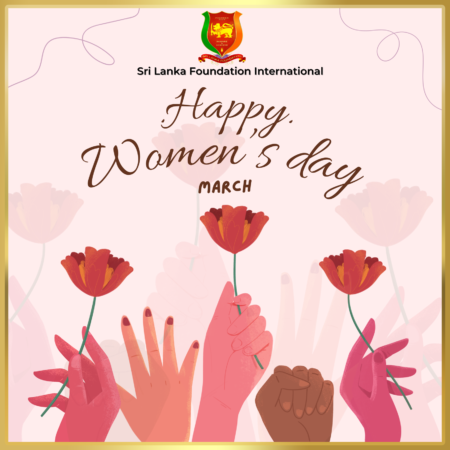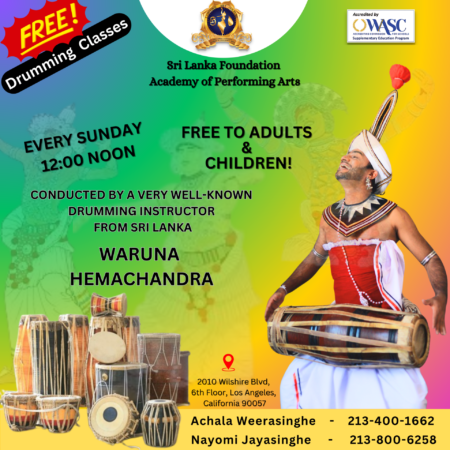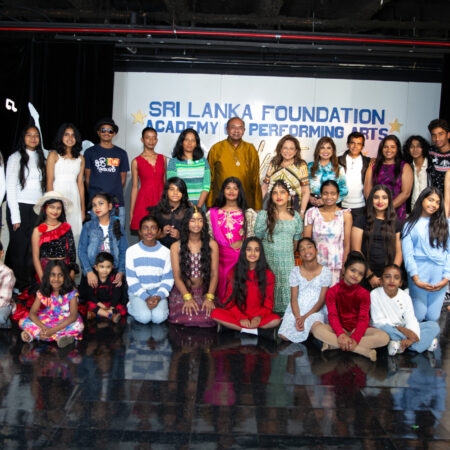Casey Sanchez
In its rich depiction of children’s adventures and squabbles on a cul-de-sac of Sri Lanka’s capital city, the novel On Sal Mal Lane finds an unlikely route to portray the island nation in the early 1980s. Just before the outbreak of a civil war that would last decades, families of different faiths — Muslims, Sinhalese Buddhists, and Tamil Hindus, along with Catholic Burghers, descendants of the country’s Dutch and British colonizers — live side by side, down the sleepy road of the book’s title. But the focus here is the families’ children, who stage variety shows, cricket matches, and bike races, all while unknowingly reproducing their parents’ rising prejudices.
“This book comes from having lived through that time in Sri Lanka. I was a child in the middle of the war. It’s a portal into a world that I had lived through,” said author Ru Freeman in an interview with Pasatiempo. “Through the lives of children in this small neighborhood, you can see an escalation of the small things that eventually led to the catastrophe, the war. It allowed me to put myself in a place I had once been.”
Freeman will speak in Santa Fe at 7 p.m. on Wednesday, Sept. 21, at the Lensic Performing Arts Center as part of the Lannan Foundation’s Readings and Conversations series. She will be interviewed by New York-based critic and writer John Freeman.
On Sal Mal Lane (Graywolf Press, 2013) begins with the arrival of the Heraths, a family headed by a mother who is a Sinhalese Buddhist and who perplexes the other women in the neighborhood with her love of singing religious hymns — Catholic, Hindu, and Muslim. Freeman writes that she “was given to taking on other faiths … of which she partook like others tasted of side dishes, little plates piled high with crispy fish cutlets and vegetable patties.” Mrs. Herath has a gregarious love of music and an openness to other faiths that she passes on to her four raucously delightful children — Suren, Nihil, Rashmi, and Devi. They live for their imaginative performances, variety-show collaborations with a whole street full of kids of many faiths.
In marked contrast to the tolerant attitudes of the Heraths are the Silva brothers, Mohan and Jith, who are rewarded by their parents for expressing prejudice. Mohan “had recently begun to understand that disliking the mostly Hindu Tamil boys in school … had earned him an influential clique of wealthy, cosmopolitan friends who had shunned him before,” Freeman writes. “Little differences had now become his secret arsenal. Things like the smell of the gingelly oil they used on their hair, which he had deemed disgusting and unlike the dill-fragranced coconut oil he used on his own head. And, even better than his new friends at school, was his sense that somehow he had earned the approval of his father, who had always seemed inaccessible, locked as he was in his firm opinions morning and night.”
For American readers, at least, the Silva’s prejudices are a window into the ways that discrimination is conducted, where “to the untrained eye the physical distinction between the Sinhalese and the Tamil races was so subtle that only the natives could distinguish one from the other. … But distinctions there were, and the natural order of things would eventually come to pass: resentments would grow. …”
Though the novel slightly exaggerates class issues, Freeman said the titular street of Sal Mal Lane “is a microcosm of the country.” Even after the end of the 26-year civil war in 2009, the country’s urban neighborhoods remain remarkably diverse. “It’s a small island. It’s not like the U.S. where your kids move to Texas and you live In Philadelphia,” said Freeman. “People stay near family and live in neighborhoods that, for the most part, remain very mixed.”
A writer on literature and politics for the Huffington Post, Freeman has served as editor of Extraordinary Rendition: (American) Writers on Palestine (Olive Branch Press, 2016). Her debut effort, 2009’s A Disobedient Girl (Atria Books), follows the lives of two Sri Lankan women from girlhood — one an orphan raised as a servant alongside the family’s privileged daughter of the same age. On Sal Mal Lane, her second novel, was the 2014 winner of the Sister Mariella Gable Award for fiction and the Janet Heidinger Kafka Prize for fiction by an American woman.
Most recently, she has contributed her talents as fiction editor of Panorama, a “journal of intelligent travel.” The inaugural issue had her contemplating life in Marfa, Texas, where she spent last winter on a Lannan Residency fellowship. Her article is a reflection on the unexpected graciousness she found in the region’s cowboy ranching culture, where “neighbourliness and good will must take precedence over the big city indulgences of self: isolation and self-reliance.”
It’s like Freeman to focus on human civility that gets missed in stereotypes. After all, her fiction, set in times of rising class and religious conflict in Sri Lanka, is largely devoted to how people of different castes and faiths build binding ties of community.
As might be expected, On Sal Mal Lane ends with the country’s civil war intruding on the lives of families, crushing dreams and breaking hearts. But it’s not the book’s climax and certainly not its heart. That may belong to a wonderful passage, nearly one hundred pages from the novel’s end, when the kids pull off the incredible feat of bringing parents of different faiths — their nationalist hostilities now stoked by the press and rival politicos — into a single house for one night for a grade-school revue of ABBA, the Beatles, and local folk songs. It is a cross-cultural moment of peace that they will never again see.
“No day in the history of Sal Mal Lane had ever seen a spectacle like that one. The sound of a band playing, a band that was made up of one Muslim boy, two Sinhalese boys, two Tamil boys and one Burgher girl, Rose, singing her heart out, a girl singing like she knew this was it, this moment, this day, this performance, it was all she was ever going to have to remember when she was old, that kind of music was not of this world,” Freeman writes. “It was the music of days past and days that would never be. The music of still-fast friendships and the absence of tragedy.”






















